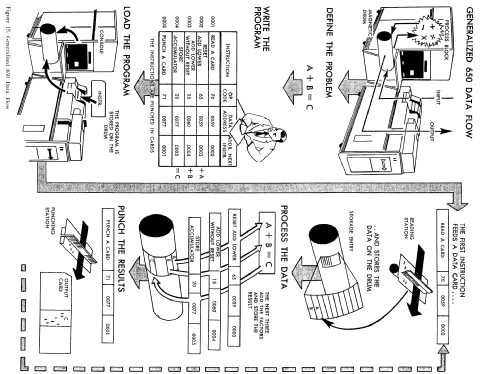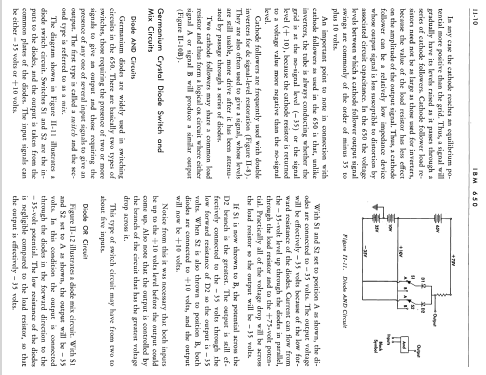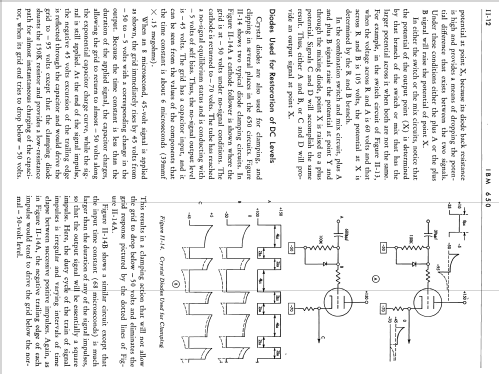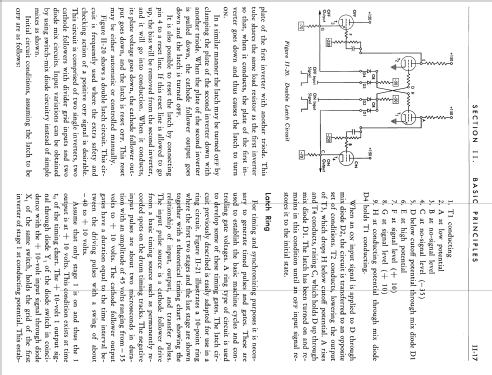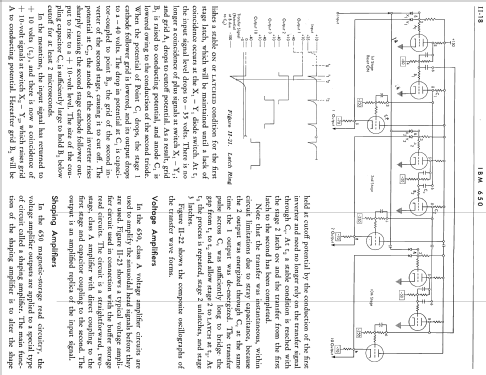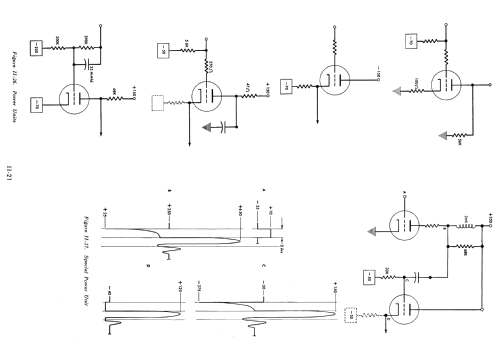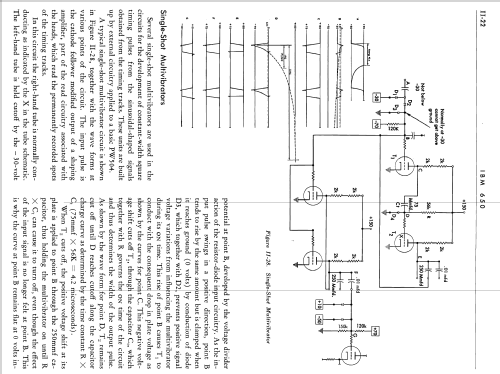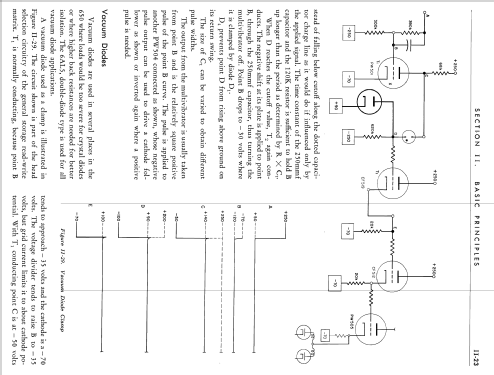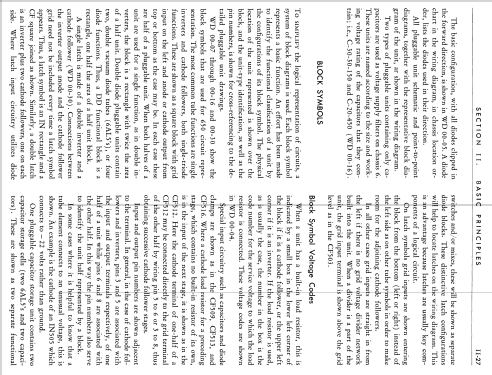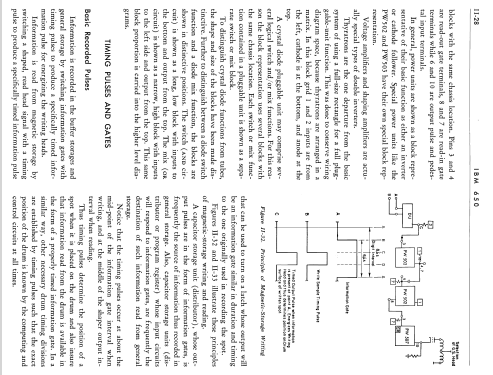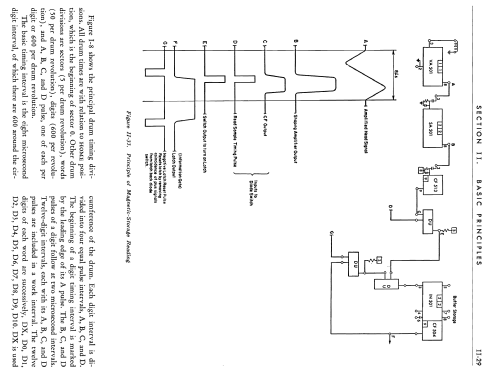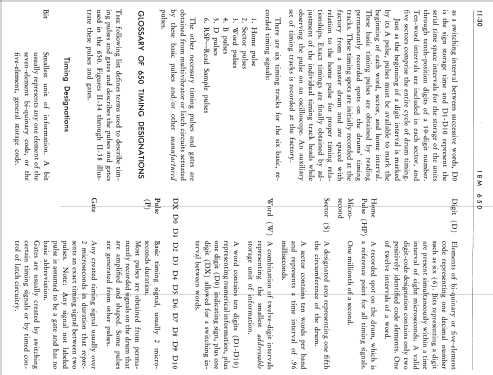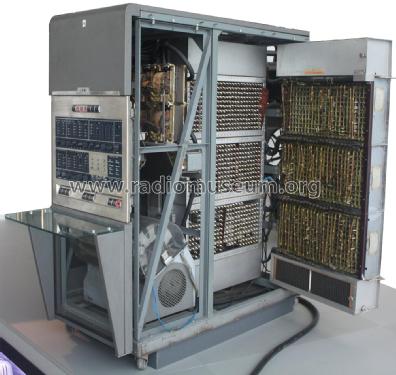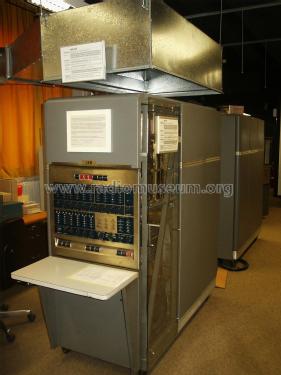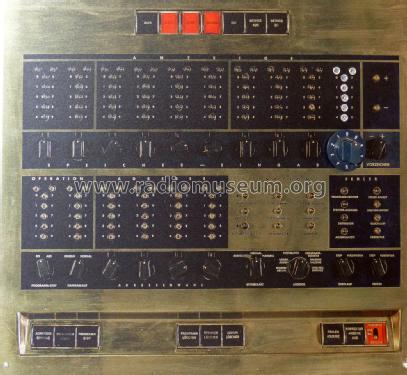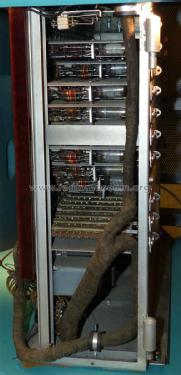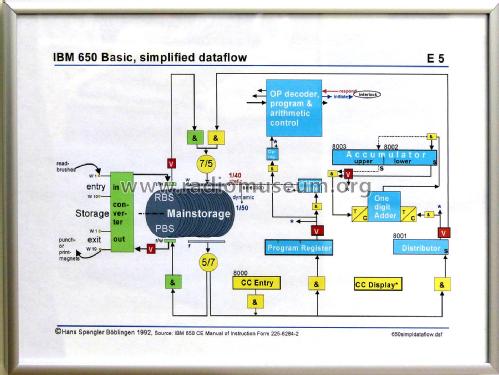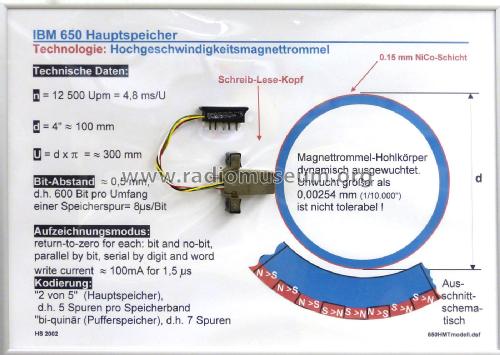Magnetic Drum Data Processing System Machine 650
IBM; Armonk, N.Y.
- Pays
- Etats-Unis
- Fabricant / Marque
- IBM; Armonk, N.Y.
- Année
- 1954–1962
- Catégorie
- Processeur de signal et informatique
- Radiomuseum.org ID
- 297336
Cliquez sur la vignette du schéma pour le demander en tant que document gratuit.
- No. de tubes
- 2000
- No. de transistors
- Semi-conducteurs
- OA86C
- Principe général
- Principe spécial
- Gammes d'ondes
- - sans
- Tension / type courant
- Alimentation externe ou alimentation principale
- Haut-parleur
- - - Pas de sortie basse fréquence
- Matière
- Boitier métallique
- De Radiomuseum.org
- Modèle: Magnetic Drum Data Processing System Machine 650 - IBM; Armonk, N.Y.
- Forme
- Gros appareil industriel ou militaire (> 20 kg)
- Dimensions (LHP)
- 62.125 x 30.25 x 50.75 inch / 1578 x 768 x 1289 mm
- Remarques
-
The IBM 650 Magnetic Drum Data-Processing Machine is one of IBM's early computers, and the world’s first mass-produced computer. Almost 2,000 systems were produced, the last in 1962
The IBM 650 needs a IBM 655 Power Unit. It houses 650 power supply, translating circuitry
Some 650 milestones - variants:
July 14, 1953: IBM 650 Magnetic Drum Data Processing System Machine is announced.
December 8, 1954: The first 650 delivered to a customer.
1955: Magnetic tape input-output and the IBM 407 accounting machine are announced as additional equipment for the 650 system.
September 14, 1956: 650 RAMAC (which combines the IBM 650 Magnetic Drum Data Processing Machine and a series of IBM 355 disk memory units) and the 305 RAMAC are announced.
March 30, 1959: IBM 355 Model 2 Disk Storage Unit with double capacity disk storage files for the IBM 650 is announced.
June 12, 1959: IBM 650 Model 4 console unit is introduced.
June 18, 1959: Double capacity magnetic drum storage for the 650 Data Processing System is announced.
1962: The final IBM 650 is manufactured.
August 18, 1969: The IBM 650 and its components are withdrawn from marketing (support end!).General information
about 2000 tubes and 5000 Germanium diodes
clock frequency: 125 kHz
Storage capacity of magnetic drum:
10,000 or 20,000 digits (1,000 or 2,000 words)
Input units:
IBM 533 Read-Punch Unit
IBM 407 Accounting Machine
IBM 727 Magnetic Tape Unit
Output units
IBM 533 Read-Punch Unit
IBM 407 Accounting Machine (with Summary Punch)
IBM 727 Magnetic Tape Unit
Input-Output storage areas
Independent storage areas are provided for simultaneous input and output operations.Approximate calculating speeds (optimally programmed)
78,000 additions or subtractions per minute
5,000 multiplications per minute (multiplier = 5,555,555,555)
3,700 divisions per minute (divisor = 5,555,555,555)
138,000 logical decisions per minuteFloating-Point arithmetic
Approximate calculating speeds (optimally programmed)
35,300 floating additions or subtractions per minute (4 shifts)
6,000 floating multiplications per minute (multiplier = 55,555,555)
3,800 floating divisions per minute (divisor = 55,555,555)When a program error occurred, the computer could automatically jump back in the program and run through the program again, which meant a considerable time saving compared to manual re-entry for checking.
It also had a magnetic drum memory, hence the official name IBM 650 Magnetic Drum Data Processing Machine.
- Poids net
- 905 kg / 1993 lb 6.3 oz (1993.392 lb)
- Littérature
- IBM History
- Auteur
- Modèle crée par Heribert Jung. Voir les propositions de modification pour les contributeurs supplémentaires.
- D'autres Modèles
-
Vous pourrez trouver sous ce lien 20 modèles d'appareils, 20 avec des images et 14 avec des schémas.
Tous les appareils de IBM; Armonk, N.Y.
Musées
Le modèle Magnetic Drum Data Processing System Machine peut être vu dans les musées suivants.
